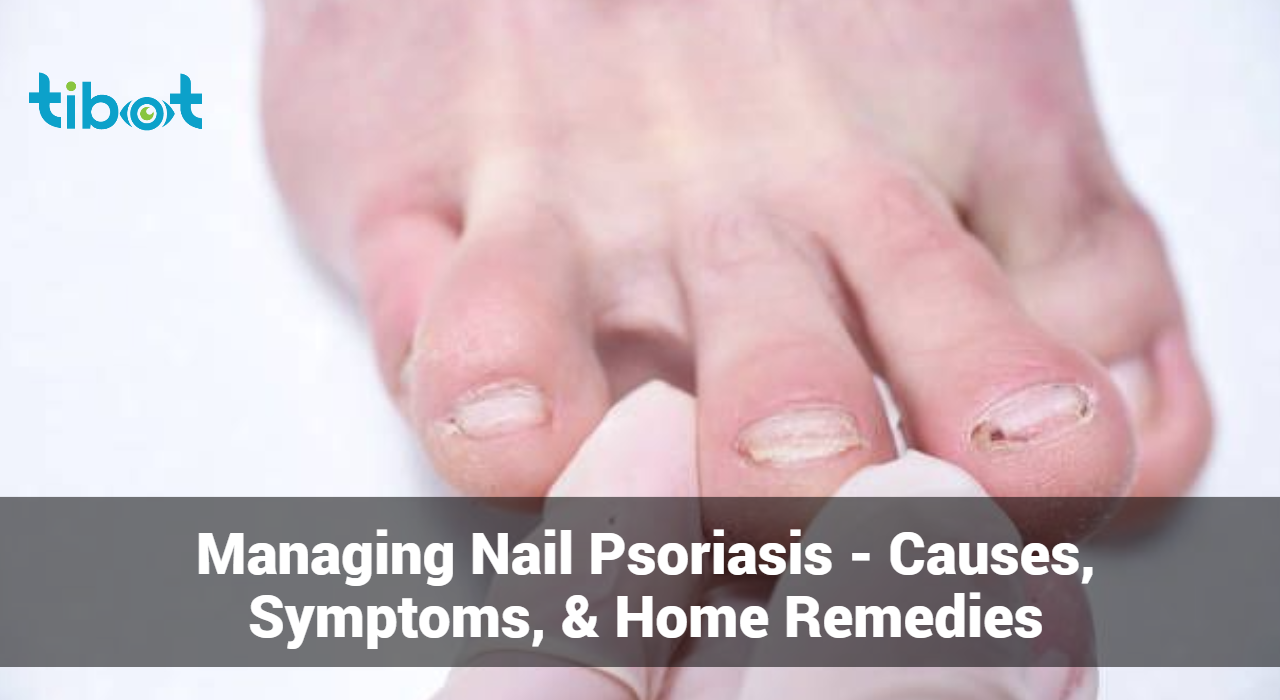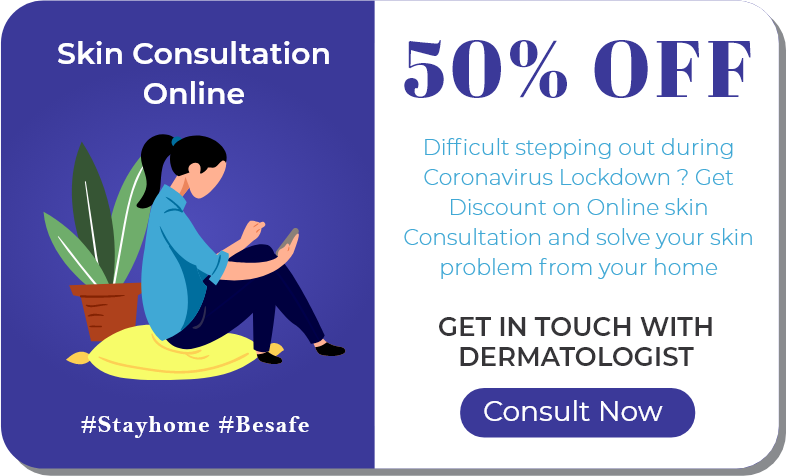Managing Nail Psoriasis: Causes, Symptoms, And Home Remedies

Nail psoriasis is a common condition that affects the nails of individuals with psoriasis. It can be distressing and challenging to manage, but understanding its causes, symptoms, and treatment options can help you effectively control and alleviate its impact. This comprehensive guide will explore the causes, symptoms, and home remedies for nail psoriasis, providing you with the knowledge to manage this condition effectively.
What is Nail Psoriasis?
Nail psoriasis is a manifestation of psoriasis, a chronic autoimmune condition that primarily affects the skin but can also impact the nails. When psoriasis affects the nails, it can cause changes in the appearance, texture, and overall health of the nails. This condition can affect both fingernails and toenails and is often seen in conjunction with other forms of psoriasis.
What Are Causes of Nail Psoriasis?
Nail psoriasis occurs due to the same underlying mechanisms that cause psoriasis. These mechanisms involve a malfunction of the immune system, leading to rapid skin cell turnover and inflammation. Here are some key factors contributing to nail psoriasis:
- Genetics: A family history of psoriasis or other autoimmune diseases can increase the risk of developing nail psoriasis.
- Immune System Dysfunction: In individuals with psoriasis, the immune system mistakenly attacks healthy skin cells, causing rapid cell turnover and inflammation. This can extend to the nail bed and matrix, affecting nail health.
- Environmental Triggers: External factors such as stress, infections, injuries, and certain medications can trigger or worsen psoriasis, including nail psoriasis.
- Psoriatic Arthritis: Individuals with psoriatic arthritis, a type of arthritis associated with psoriasis, are more likely to develop nail psoriasis.
- Pitting: Small, depressions or pits form on the nail surface.
- Discoloration: Nails may develop yellow, brown, or white spots or patches.
- Thickening: Nails can become thickened and difficult to trim.
- Onycholysis: Separation of the nail from the nail bed, causing the nail to lift and sometimes detach.
- Crumbly Nails: Nails can become brittle and crumble or split easily.
- Subungual Hyperkeratosis: A buildup of skin cells under the nail, causing the nail to appear raised.
- Redness and Inflammation: The skin around the nails can become red, swollen, and tender.
Diagnosis of Nail Psoriasis
To diagnose nail psoriasis, consult a dermatologist who will review your medical history and perform a physical examination of your nails. In some cases, a biopsy or skin scraping may be taken to confirm the diagnosis and rule out other conditions such as fungal infections.
Treatment Options for Nail Psoriasis
While there is no cure for nail psoriasis, various treatments can help manage symptoms and improve the appearance of affected nails.
Topical Treatments
- Corticosteroids: These anti-inflammatory medications can be applied directly to the nails and surrounding skin to reduce inflammation and slow cell turnover.
- Vitamin D Analogs: Topical treatments like calcipotriene can help slow skin cell growth and improve nail appearance.
- Retinoids: Tazarotene, a topical retinoid, can help regulate skin cell production and reduce inflammation.
Systemic Treatments
- Biologics: Injectable medications like adalimumab, etanercept, and ustekinumab target specific parts of the immune system to reduce inflammation and slow cell turnover.
- Oral Retinoids: Acitretin can help improve nail psoriasis by reducing skin cell production.
- Methotrexate: This oral medication can suppress the immune system and reduce inflammation.
Phototherapy
Ultraviolet (UV) light therapy can help reduce inflammation and improve nail health. Treatments typically involve exposing the nails to UV light under the supervision of a healthcare professional.
Nail Care
Proper nail care can help manage symptoms and prevent complications:
- Trim and File Nails Regularly: Keeping nails short and filed can prevent damage and reduce the risk of infection.
- Avoid Nail Trauma: Protect nails from injury by wearing gloves during activities that could damage them.
- Keep Nails Clean and Dry: Maintaining good nail hygiene can prevent infections and further complications.
Analyze Skin Diseases
Use our AI chatbot to determine your skin condition
Home Remedies for Nail Psoriasis
In addition to medical treatments, several home remedies can help alleviate symptoms and promote healthy nail growth:
- Moisturize Regularly: Keep nails and surrounding skin hydrated with thick creams or ointments to prevent dryness and cracking.
- Avoid Nail Trauma: Protect your nails from injury by wearing gloves during activities that could damage them, such as gardening or cleaning.
- Use Gentle Nail Products: Avoid harsh nail polishes, removers, and adhesives that can irritate nails. Opt for gentle, hypoallergenic products instead.
- Diet and Supplements: A balanced diet rich in vitamins and minerals, such as biotin, zinc, and omega-3 fatty acids, can support nail health. Consult your doctor before taking any supplements.
- Manage Stress: Since stress can trigger psoriasis flares, practicing stress-reducing techniques like yoga, meditation, and deep breathing can help manage symptoms.
- Warm Soaks: Soaking nails in warm water with added oils or Epsom salts can soften nails and reduce discomfort.
- Natural Remedies: Some people find relief using natural remedies such as aloe vera gel, tea tree oil, or apple cider vinegar. Always do a patch test first to ensure you don’t have an adverse reaction.
- Aloe Vera Gel: Known for its soothing properties, aloe vera can reduce inflammation and promote healing.
- Tea Tree Oil: This essential oil has antifungal and antibacterial properties that can help prevent infections.
- Apple Cider Vinegar: Soaking nails in a diluted apple cider vinegar solution can help reduce discoloration and prevent infections.
Is It Possible to Prevent Nail Psoriasis?
Nail psoriasis, a manifestation of the chronic autoimmune condition psoriasis, primarily affects the nails and can be challenging to manage. While it may not be possible to completely prevent nail psoriasis, several strategies can help reduce the risk of flare-ups and manage the condition more effectively. Here are some practical steps to consider:
1. Maintain Proper Nail Hygiene
- Regular Trimming: Keep your nails short and neatly trimmed to prevent them from catching on objects and causing injury.
- Gentle Filing: Use a fine emery board to gently file the edges of your nails to avoid rough or jagged edges that can lead to trauma.
- Clean Nails: Regularly clean under your nails to prevent infections and maintain overall nail health.
2. Protect Your Nails from Trauma
- Wear Gloves: Use protective gloves when performing activities that can injure your nails, such as gardening, cleaning, or washing dishes.
- Avoid Biting Nails: Refrain from biting your nails or picking at the skin around them, as this can lead to trauma and increase the risk of flare-ups.
3. Use Nail Products Carefully
- Hypoallergenic Products: Choose hypoallergenic nail products to reduce the risk of irritation. Avoid harsh chemicals found in some nail polishes, removers, and artificial nails.
- Moisturize: Apply moisturizing creams or oils to your nails and cuticles regularly to keep them hydrated and prevent dryness and cracking.
4. Manage Stress
- Stress Reduction Techniques: Practice stress management techniques such as yoga, meditation, deep breathing exercises, or hobbies that help you relax.
- Regular Exercise: Physical activity can reduce stress and improve overall health, which may help manage psoriasis symptoms.
5. Follow a Healthy Diet
- Balanced Nutrition: Eat a balanced diet rich in fruits, vegetables, lean proteins, and whole grains to support your immune system and overall health.
- Anti-Inflammatory Foods: Incorporate anti-inflammatory foods such as fatty fish, nuts, seeds, and olive oil into your diet.
- Supplements: Consider supplements like biotin, zinc, and omega-3 fatty acids, but consult your doctor before starting any new supplements.
6. Avoid Known Triggers
- Identify Triggers: Keep a diary to track potential triggers, such as certain foods, stress, infections, or medications.
- Avoid Triggers: Once identified, take steps to avoid or minimize exposure to these triggers.
7. Seek Medical Advice
- Regular Check-Ups: Consult a dermatologist regularly to monitor your condition and make any necessary adjustments to your treatment plan.
- Early Intervention: If you notice any changes in your nails or experience new symptoms, consult your doctor promptly for early intervention.
Conclusion
Managing nail psoriasis involves a combination of medical treatments, home remedies, and lifestyle adjustments. By understanding the causes and symptoms, you can take proactive steps to alleviate discomfort and improve the appearance of your nails. If you suspect you have nail psoriasis, consult a dermatologist for an accurate diagnosis and personalized treatment plan. With the right approach, you can manage nail psoriasis effectively and maintain healthy, strong nails.





